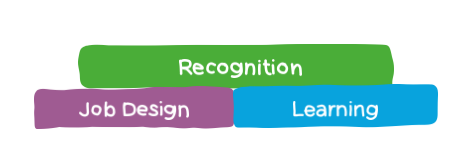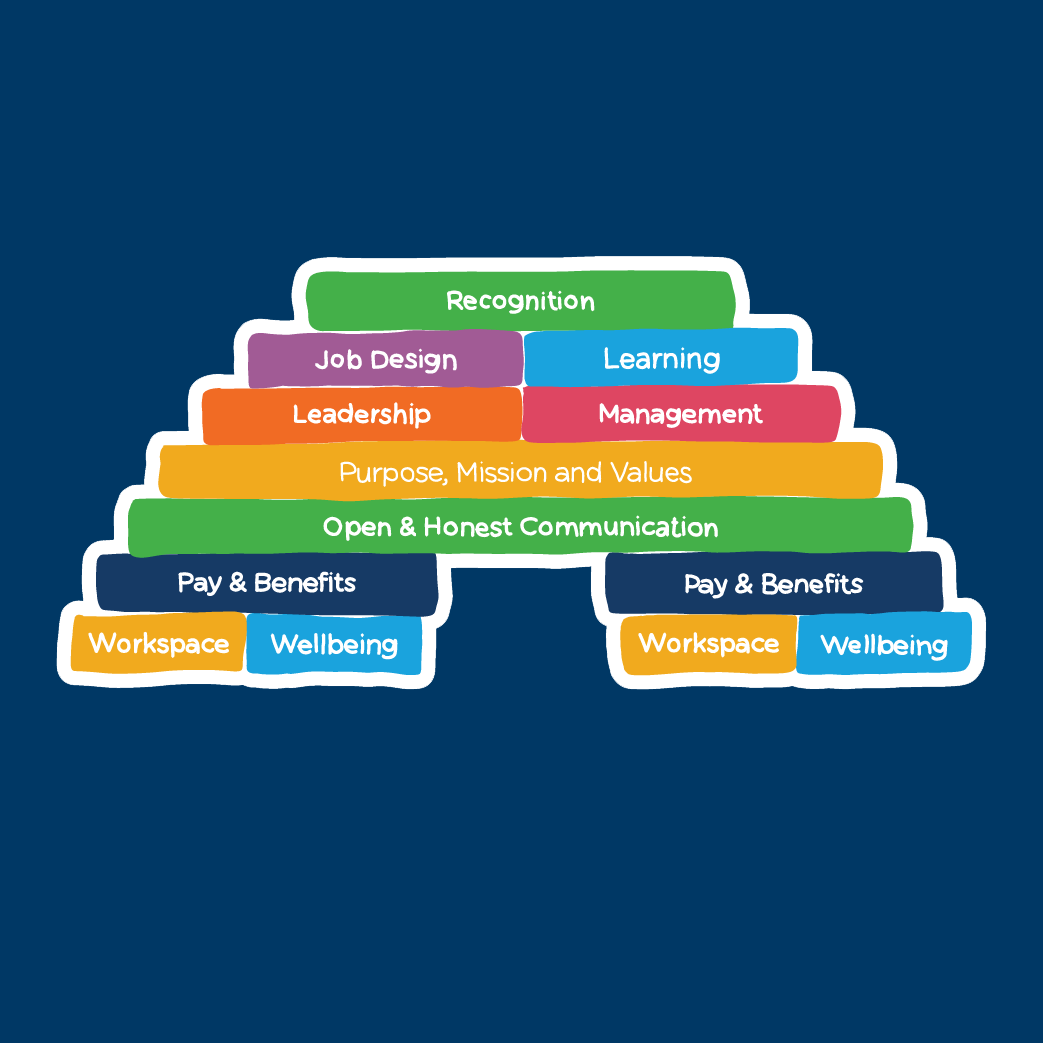Through our work with more than 2,500 clients in 23 countries, we’ve built a deep understanding of company culture, employee engagement and the tools, techniques and best practice that companies use to build connections with their people.
We’ve codified this understanding into a 10-element employee engagement model, the Engagement Bridge™ which documents the key parts of your organization and your relationship with your people that you need to consider in order to build a more engaged culture.
Every organization is different and the model is your guide, not your specific recipe.
The order that you should approach things and the importance or value that each element has will depend on your own context – where you are in your employee engagement strategy, the makeup of your workforce and the type of market you are in. As our Client Success Director has said, employee engagement is not one-size-fits-all.
Remember, we're always here to help you take a hard look at your employee engagement strategy and hone in on how you can build your own bridge. Get started by reaching out to one of my colleagues below.
So while we’ve broken down the Bridge™ in a couple videos and talked about honing in on certain elements like recognition and employee perks, I wanted to give you a few “flash cards” to recall some important points. Here’s a look at all 10 elements of the Bridge™:
Open & Honest Communication

This is the foundation of the Engagement Bridge™ — creating an open and honest culture is incredibly important. What we mean by this is building an open and transparent communications culture, so your people understand the “why” behind your decisions, you’ve created two-way feedback routes and you’ve fostered an environment where your people trust your decision and your leadership.
Purpose, Mission & Values

Are you giving your employees something bigger to work towards, and do they understand your organization’s contribution to both your industry and society? When I say Reward Gateway’s mission is, “Let’s make the world a better place to work,” I want our employees to understand that our offering — HR technology — is a means to better connect the organization to their people, in a variety of ways to build better engagement.
Download our newly designed Culture Book for an insider look at Reward Gateway's culture »
Your purpose, mission and values are your guiding light … they help with strategy, decision-making and employee behaviors to lead the company to greater success.
Leadership & Management

There’s an intrinsic link between leadership and management, which is why although technically separate, we’ve shown them on a single line. To put it succinctly:
Leadership is what the company says it will do, while management is what the company actually does.
How we do business is changing. Technology and job mobility is democratizing leadership. The best staff demand leaders be held accountable for being visible, being human, adding value and being a champion of the company’s values, developing a high trust culture.
Management, by which we mean management practice (essentially, policy, and how your organization runs), is a separate element to leadership but we discuss them together to emphasise the point that if Leadership & Management are not kept in step you will end up with an inauthentic culture.
Job Design, Learning & Recognition

These three are also linked. The best designed jobs we see have recognition and visibility, as well as learning and development built into them from the start. These jobs are meant to grow people, not constrain them, and offer progression, learning and feedback. Building a culture of continuous employee recognition helps show appreciation for employees to share success and wins, companywide.
Pay & Benefits, Workplace and Wellbeing

These are the underpinning elements in the Bridge™ — the absence of these can cause your bridge to collapse, or prevent you from forming a bridge at all. Pay and employee perks are a necessity in any job, and are important supporting elements of the Bridge™. Likewise, the care you put into your workplace and your employees’ wellbeing can drive productivity levels, define some of your company culture and bring your company values to life.
When it comes to the Bridge™, there’s no fixed starting point.
The most important thing you can do as a leader is to take action. Today. Right now. So start where you can make the biggest impact the fastest.
And lastly, know that engagement is never “done.” There’s no such thing a “perfect” engagement — it’s a work in progress, and it changes as your business and your people change, too.

 Glenn Elliott
Glenn Elliott



